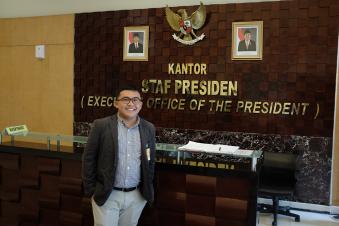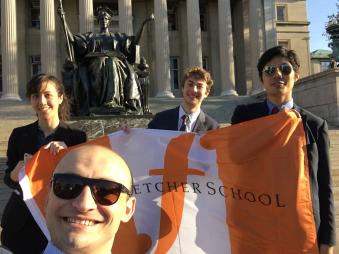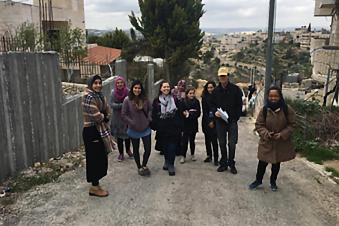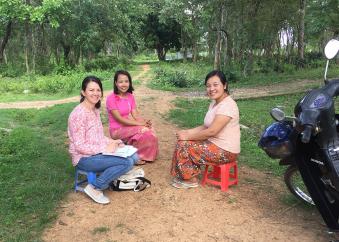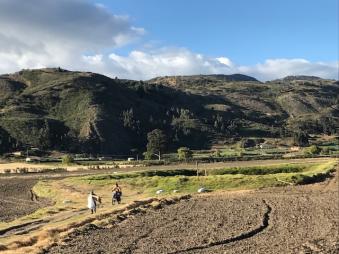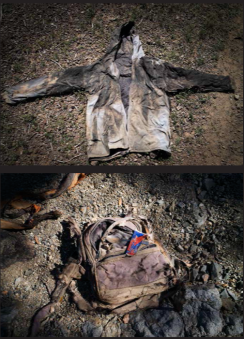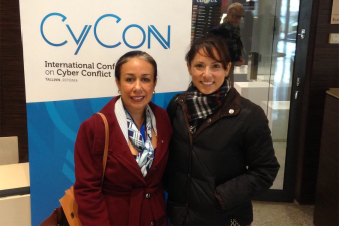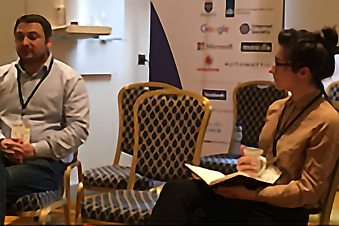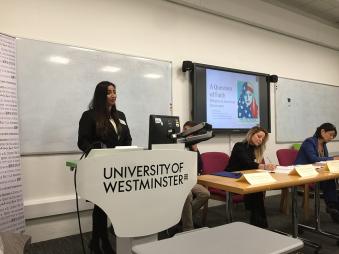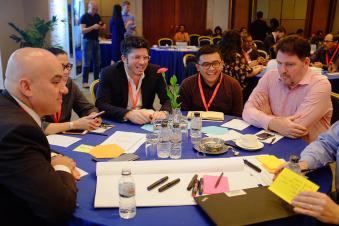-

Hear from Professor Monica Toft
Learn how Professor Monica Toft is shaping the study of global affairs and diplomacy at Fletcher.
Hear from Prof. Toft -

Explore Fletcher academics in action
Fletcher Features offers insights, innovation, stories and expertise by scholars.
Get global insights -
Get application tips right from the source
Learn tips, tricks, and behind-the-scenes insights on applying to Fletcher from our admissions counselors.
Hear from Admissions -

Research that the world is talking about
Stay up to date on the latest research, innovation, and thought leadership from our newsroom.
Stay informed -
Meet Fletcherites and their stories
Get to know our vibrant community through news stories highlighting faculty, students, and alumni.
Meet Fletcherites -

Forge your future after Fletcher
Watch to see how Fletcher prepares global thinkers for success across industries.
See the impact -

Global insights and expertise, on demand.
Need a global affairs expert for a timely and insightful take? Fletcher faculty are available for media inquiries.
Get in Touch
Fletcher Educational Enrichment Fund
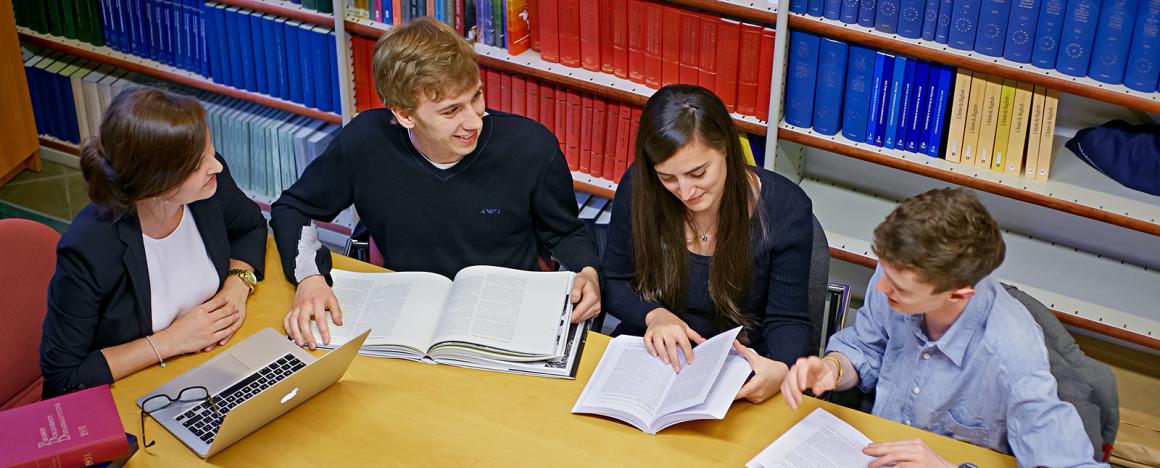
The Fletcher Educational Enrichment Fund (FEEF) makes small grants to allow students to participate in a variety of experiential activities that extend and enrich their course of study. Proposals for research, conference presentation and participation, academic and entrepreneurial competitions, and other activities related to academic and professional goals may be awarded funding to assist with travel and related expenses. All Fletcher degree candidates are eligible to submit proposals.
Sample Activities
Read more on the variety of activities and work carried out with support from the Fletcher Educational Enrichment Fund.
-
Angga Martha received a grant to pursue independent research in Jakarta, Indonesia. Angga's Capstone project investigated the relationships between Indonesia's efforts to position itself as a "global maritime axis" and its fulfillment of sustainable development goals. Through site visits and conversations with government officials, Angga's research revealed the country's "global maritime axis" aspirations being sidelined by its efforts to achieve sustainable development goals, rather than progressing in conjunction with those efforts.
-
Zviad Adzinbaia, Donghyeon Kim, Eriko Stronach, and Mattia Balsiger participated in The Atlantic Council Cyber 9/12 Student Challenge held at Columbia University. The cyber-crisis simulation featured
teams from universities nationwide competing in front of expert judges in the cyber policy sector. Acting as National Security Staff, the team was tasked with developing a policy response to a scenario involving a large-scale cyber attack. In addition to producing memos and presentations with policy recommendations to expert judges, the group attended cyber policy lectures and panels, and had the opportunity to meet several key figures in cyber policy, including representatives of Google, the managing director of Morgan Stanley, and the City of Seattle's Chief Technology Officer.
-
Mariela Medina Castellanos and Andrea Becerra spent spring break in the West Bank as part of an ongoing project of Tufts' interdisciplinary Water: Systems, Science & Society Program (WSSS). Participants in the WSSS Palestine Practicum conducted household surveys and analyzed tap water samples in Al-Walaja village to assess water access and quality. Their work showed the presence of coliform bacteria in several cisterns, as well as chronic seasonal water shortages in nearly 1/4 of the surveyed population, shortages which often resulted in greater cistern usage. The group recommended further studies incorporating larger sample sizes, as well as comparative samples during rainy and dry seasons.
-
Anna Jacobson traveled to Myanmar and Lebanon in partnership with Mercy Corps, where she interned during the summer of 2017. Anna's ongoing research focuses on civic engagement and local governance in post-conflict environments. Her work involves a comparative study of Mercy Corps' programming around these issues in two distinct post-conflict settings. During her travels Anna interviewed program staff, other donors implementing similar programming in each location, as well as selected project participants.
-
Juan Taborda's dissertation argues that the decline of agriculture extension services, including provision of public goods, technology transfer, and research and development, has been a key contributor to the stagnant growth of Colombia's agricultural sector in the past several decades. Juan's FEEF grant allowed him to travel to Colombia to conduct a variety of interviews with current and former government figures working in agriculture and rural development, as well as academics studying related issues.
-
As part of an ongoing photojournalism project, Anthony Schultz spent several days traveling a portion of the "migrant trail" in southern Arizona documenting articles left by migrants in their journeys across the Sonoran Desert. His larger work aims to produce a comprehensive documentary portrait of the migrant experience to the US, from the experience of traveling to and crossing the US-Mexico border, to the "virtual detention" faced by many upon arrival.
Anthony has previously spent time interviewing undocumented migrants in the Intensive Supervision Appearance Program (ISAP II) of U.S. Immigration and Customs Enforcement. The program, which employs GPS ankle-monitors and unannounced home visits, costs far less than physical detention. Anthony has found that the program, while superior to physical detention in many respects, is still often a dehumanizing experience for migrants, and involves many practical challenges that make compliance difficult.
-
A Fletcher Educational Enrichment Fund grant allowed Monica Ruiz to attend CyCon2017, an annual NATO-sponsored cyber security conference, in Tallinn, Estonia. The conference focused on "grey zone" areas between peace and conflict in which an increasing range of state and non-state actors exert influence and project power through cyber activities. The event included discussions with Paul Nicholas, head of Microsoft's Global Security Strategy and Diplomacy Team, Former Estonian Minister of Foreign Affairs Marina Kaljurand, and Prof. Michael Schmitt, Chairman of the Stockton Center at the US Naval War College.
-
Building upon her internship experience at the U.S. Embassy in Tallinn, Estonia, Natalie Balents attended RightsCon in Brussels to present her thesis research on the potential of e-governance in Eastern Europe. Natalie was selected from a pool of 400 submissions to present her research at the event, which is sponsored by AccessNow. Entitled "Will-o-the Wisp: The Perceptions of e-Government and Its Application for Development," her research presentation session framed a larger discussion of efforts to establish and consolidate internet-based and digital government services in middle income and transitioning states.
-
MALD student Mariya Ilyas traveled to the University of Westminster to present her paper Religious Roots of American Democracy for the 2017 Democracy and Rule of Law Conference. Ilyas joined over a dozen other scholars from around the world in presenting her work, which will be published by The Center for the Study of International Peace and Security at the university.
-
JJ Oh, Akshobh Giridharadas, and Yuko Iritani used a FEEF grant to attend the 2017 World Bank Group Youth Summit in Washington, DC. With a theme of "Technology and Innovation for Impact," the two-day summit involved plenary sessions, breakout workshops, simulations, panel sessions, and many networking opportunities. Among many others working in development technology, the group met a Ugandan mobile phone entrepreneur, the creator of a Pakistani health care platform, a Malaysian working on an ethical job-search platform for migrant workers, and an anti-corruption activist from Argentina. The group also particularly enjoyed the Summit's keynote address by Fletcher alumna Christina Sass, the co-founder of Andela, which trains African software developers.
"I would like to thank the Fletcher Educational Enrichment Fund for giving me the opportunity to deepen my engagement with my capstone research."
"I thank the Fletcher Educational Enrichment Fund for the opportunity to be molded by some brilliant minds and an incredibly talented moderator!"
"The experience was very interesting and useful, and helped me achieve another step in my further development."
"I would like to express my gratitude for providing the opportunity to pursue and expand the scope of my research project, which has been successfully completed as a result."
"I was honored to represent and increase the visibility of The Fletcher School, Tufts University, The Human Rights Project, and The Fares Center. The international contacts made, the promotion of my institutional and organizational affiliations, and the actionable information that can further my research are things I could not have achieved through desk analysis or academic research on my own."
"Thank you for supporting me to attend this event. I was eager and excited to learn and further understand ways of mitigating cyber conflict and escalation."
"We are eagerly looking forward to applying our knowledge and mentoring future Fletcher students interested in cyber security policy. We hope to continue building The Fletcher School's reputation as an institution devoted to cyber policy."
"I would like to cordially thank The Fletcher Educational Enrichment Fund for the valuable help, which was a significant element in my future career development."


